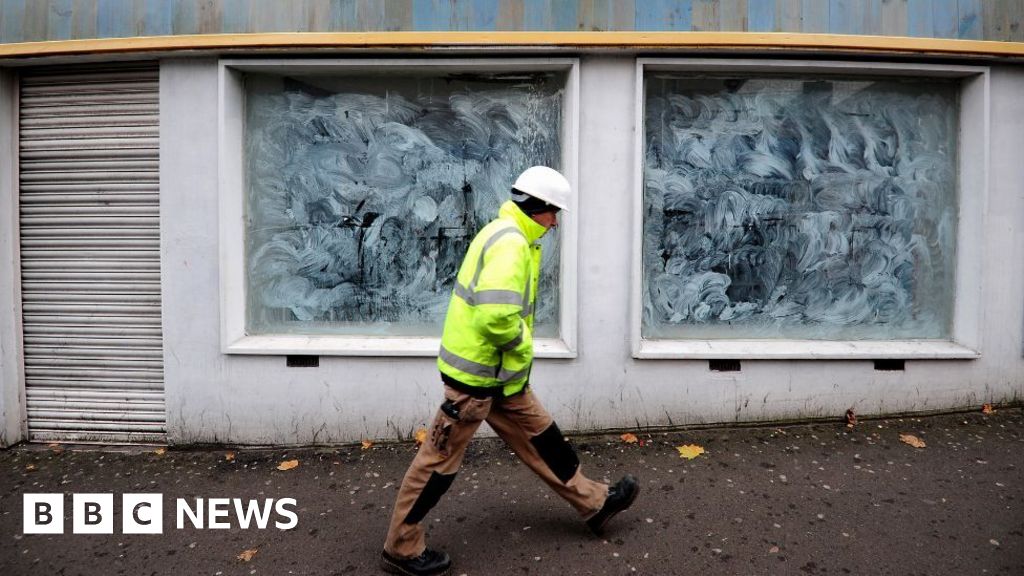Angus CochraneBBC Scotland News
 PA Media
PA MediaThe Scottish government has tabled an emergency bill to rectify a mistake which could mean thousands of properties paid business rates when they did not need to.
Up to 34,000 properties may be eligible for a refund after the error was discovered in a 2020 Scottish law.
The emergency bill is aimed at avoiding a £400m compensation bill for businesses left out of pocket – but Conservative MSPs have accused ministers of making an “unforgivable blunder”.
The original law was supposed to allow councils to levy non-domestic rates on empty business properties, but the error meant that they were not actually entitled to do so from April 2023.
What are non-domestic rates?
Non-domestic rates, often called business rates, are set by Holyrood ministers. The tax is based on the rental value of properties such as shops, offices, factories or warehouses.
The Non-Domestic Rates (Scotland) Act 2020 was intended to give councils powers to levy the rates on empty business properties.
It repealed legislation which stated no rates were payable on empty non-domestic properties – but the act failed to take account of laws dating back to 1956.
Ministers said owners of empty properties who had paid the rates since the legislative changes took effect in April 2023 would have to be refunded if a new bill was not passed.
They estimated that between 24,000 and 34,000 properties could be eligible for repayments.
The government said a one-off refund covering the three financial years between 2023 and 2026 would cost up to £400m, including any interest.
Local authorities could also be hit with up to £370,000 in administrative costs to process repayment claims.
 Getty Images
Getty ImagesThe new Non-Domestic Rates (Liability for Unoccupied Properties) (Scotland) Bill would allow the rates to be levied on business properties, subject to any reliefs decided by local authorities. The measure would be backdated to April 2023, when the previous legislative changes took effect.
The bill will be scrutinised in an accelerated process after MSPs agreed to treat it as an emergency bill.
Parliament is to be asked to agree to the general principles on Wednesday, with a final vote scheduled for Thursday.
Emergency bills can be used to counter anticipated legal action following the discovery of a loophole or problem of interpretation in an existing piece of legislation.
The government said the legal mistake was identified in August following a query by a local authority.
The error could have led to a spate of repayment claims, but the drafting error appears to have gone unnoticed by those affected.
The use of emergency legislation, and legislation that makes retrospective changes, is unusual but not unprecedented.
Human rights challenges
Scottish Conservative finance spokesperson Craig Hoy said the legislation was “incompetently drafted” and accused the government of presiding over a “fiasco”.
He told MSPs: “This government is seeking permission from this parliament to rush a piece of legislation through to cover a mistake entirely of its own making.”
Hoy also warned that there could be legal challenges to the emergency legislation.
Labour MSP Martin Whitfield called for co-operation across the chamber to fix the legal error, and for transparency from the government about how it occurred.
However, he raised concerns about retrospective changes to law, warning that it could affect principles of fairness, undermine trust in parliament and invite challenges on human rights grounds.
Parliamentary Business Minister Graeme Dey said that the work to correct the mistake had been “rapid”.
He warned that if the bill was not passed, ministers may have to make cuts to public services or raise taxes.
The SNP minister urged opposition parties to “act responsibly” and back the proposals.










